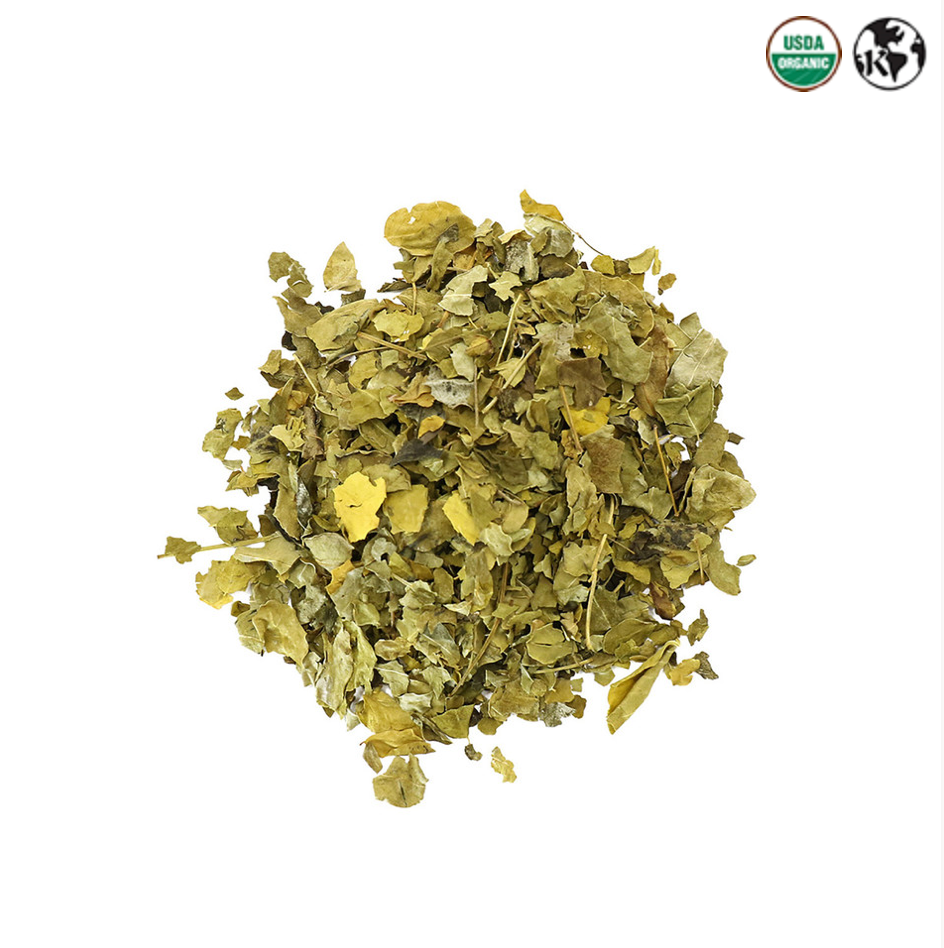Bulk
Moringa - 1 oz
Moringa - 1 oz
Couldn't load pickup availability
- Origin: Sri Lanka
- Moringa oleifera is native to India where it is utilized in a number of preparations. For thousands of years, moringa leaf has been a source of nutrition, while the timber from the morgina tree provides building materials. Moringa leaves and seed pods are often eaten for their nutritious value and the roots made into a pungent condiment. The leaf is used extensively in Ayurveda and is typically steeped as moringa tea.
-
Moringa is a tree that has been used for thousands of years in India for everything from food, to building materials, and also for its beneficial properties. This 'wonder tree' truly is wondrous in that each part of the tree is useful. The roots, stems, leaves, seed pods, resin and flowers are considered to be healing herbs in Ayurvedic (traditional Indian healing system) and Unani (traditional Middle Eastern healing system) folk medicine. In modern times, the leaves and seed pods are utilized extensively due to their nutrient content and modern studies are investigating their vast potential. Other common names include drumsticktree, West Indian ben, muringa (Tamil), jacinto (Spanish), sahijan or munaga (Hindi), and shigru or shobhanjana (Ayurvedic).
Moringa is native to the sub Himalayan mountain region particularly in India and has been introduced to southwest Asia, southwest and northeast Africa, Madagascar, the Philippines, and in the United States in California, Arizona, Hawaii and Florida. This tree is in the Moringaceae, or horseradish tree, family which is closely related to the papaya containing Caricaceae family. It is the sole genus, containing thirteen species one such species being M. stenopetala, a species native to and cultivated in Africa.
Moringa grows in countries where 5% to 35% of the population is suffering from malnutrition. According to one organization working towards feeding malnourished populations called Trees for Life "Amazingly, moringa grows in subtropical areas, where malnutrition is most prevalent. It was as if people had a goldmine in their backyard and simply didn’t know it." Many groups are supporting the cultivation of moringa for personal use in developing countries, suggesting that each person grows two or three trees in their backyard thus providing a sustainable solution to malnutrition and reducing reliance upon imported foods. Another such group, called Educational Concerns for Hunger Organization or ECHO states: "Malnutrition is a leading cause of high infant mortality throughout the tropics. Moringa has helped in bringing nutrition to these hungry children (and)….it is considered one of the most nutritious vegetables in the world. It is an important nutrient source for nursing mothers as well as developing children."
Precautions
No known precautions. We recommend that you consult with a qualified healthcare practitioner before using herbal products, particularly if you are pregnant, nursing, or on any medications.
*This statement has not been evaluated by the Food and Drug Administration. This product is not intended to diagnose, treat, cure, or prevent any disease. For educational purposes only.
Share

